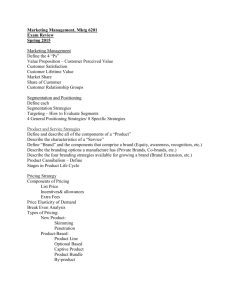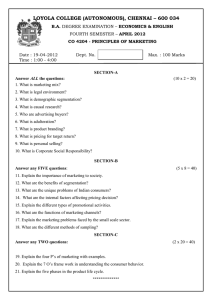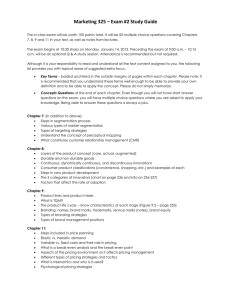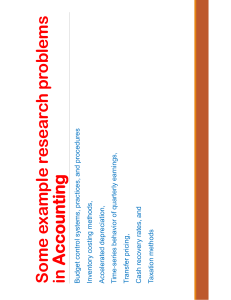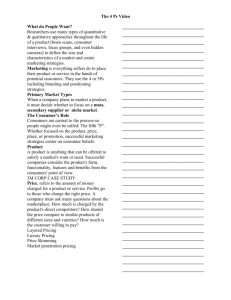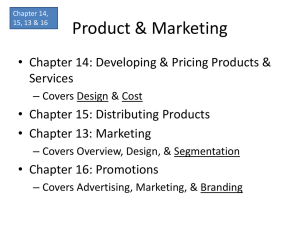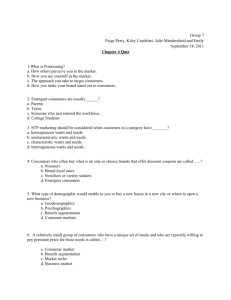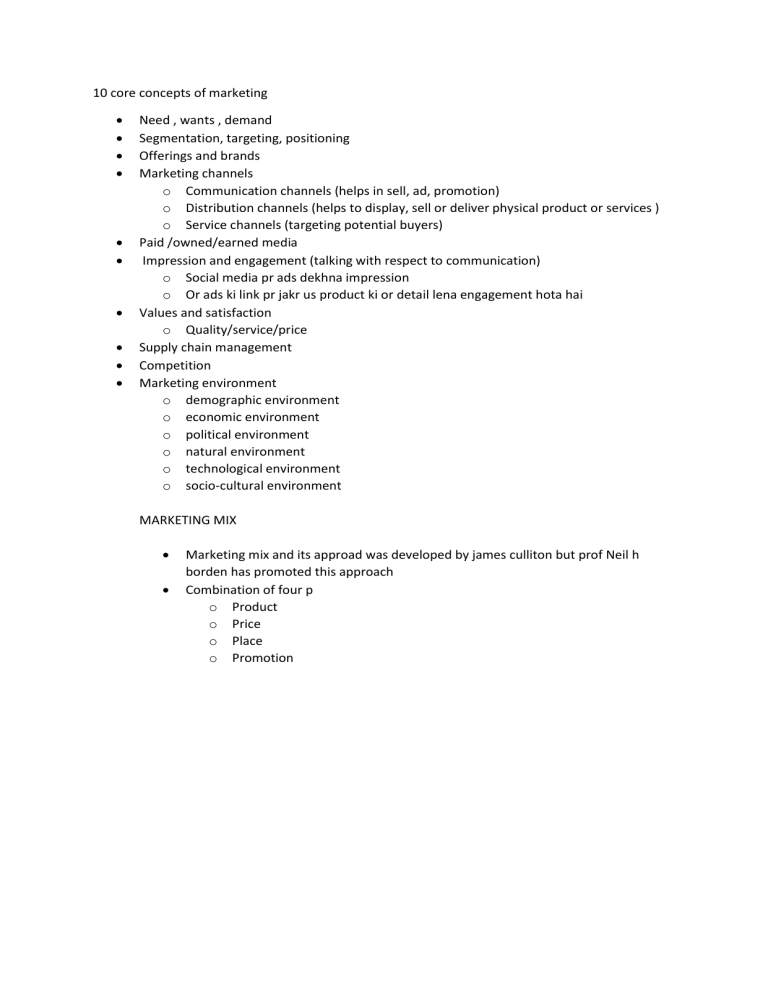
10 core concepts of marketing Need , wants , demand Segmentation, targeting, positioning Offerings and brands Marketing channels o Communication channels (helps in sell, ad, promotion) o Distribution channels (helps to display, sell or deliver physical product or services ) o Service channels (targeting potential buyers) Paid /owned/earned media Impression and engagement (talking with respect to communication) o Social media pr ads dekhna impression o Or ads ki link pr jakr us product ki or detail lena engagement hota hai Values and satisfaction o Quality/service/price Supply chain management Competition Marketing environment o demographic environment o economic environment o political environment o natural environment o technological environment o socio-cultural environment MARKETING MIX Marketing mix and its approad was developed by james culliton but prof Neil h borden has promoted this approach Combination of four p o Product o Price o Place o Promotion IMPORTANCE OF MARKETING MIX INCREASE IN CUSTOMER SATISFACTION TO PROVIDE PRODUCT ACCORDING TO THE WILLINGNESS INCREASE IN SALES PROFIT COST ANALYSIS TO ESTABLISH BALANCE INCREASE IN EFFICIENCY SEGMENTATION TARGET POSITIONING LEVELS AND PATTERNS OF MARKET SEGMENTATION o LEVELS Mass marketing Micro marketing Market segmentation o Geographic o Demographic o Behvioral o Physcographic Steps in segmentation process o Need based segmentation o Segment identification o Segment attractiveness o Segment profitability o Segment positioning Effective segmentation should be Market segmentation o Single Segment Concentration o Selective Segment Specialisation o Market Specialisation o Product Specialisation o Full Coveragw How to target market. Strategies o Customized marketing o Concentrated marketing o Differentiated marketing o Undifferentiated marketing Positioning strategies o Product attributes and benefits: Associating your brand/product with certain characteristics or with certain beneficial value o Product price: Associating your brand/product with competitive pricing o Product quality: Associating your brand/product with high quality o Product use and application: Associating your brand/product with a specific use o Competitors: Making consumers think that your brand/product is better than that of your competitors Types of product differentiation o Vertical- jisme hum ranking dete hai best se worst ki o Horizonatal – jisme hum subjective preference dekhte hai jese flavours of icecream o Mixed – vertical+horizontal Difference between product and service Product classification o Tangible and durability o Use(industrial/ consumer) ‘ Augmented Product- vo products jisme or benefits or service include hoti hai jese air conditioner me installation service , warranty , car me maintenance ya repair service Steps for creating product strategy o 1. Identify your target audience o 2. Understand the problem o 3. Define your product vision o 4. Define the current state and target condition o 5. State product design principles o 6. Stay in sync with other teams o 7. Stay focused Product life cycle o Beginning o Growth o Maturity o Decline Packaging Labelling o Brand Label ( brand name , co. name ) o Descriptive Label ( ingredients , flavour , model no. price , expiry date etc.) o Grade Label ( quality mark , other standardization marks) Difference between warranties and guarantees Branding strategy o Purpose o Consitenecy o Emotion o Flexibility o Employee involment o Loyalty o Competitive awareness Developing pricing strategy o Once price method o Pricing in a digital world o Setting price objective o Determie demand o Cost analysis o Competitive analysis and implementation 5 levels of strategic pricing are o 1. Cost-based pricing: This is where you set your prices based on the cost of producing your product or service. 2. Competition-based pricing: This is where you set your prices based on what your competitors are charging for similar products or services. 3. Customer-based pricing: This is where you set your prices based on what your customers are willing to pay for your product or service. 4. Value-based pricing: This is where you set your prices based on the perceived value of your product or service. 5. Profit-based pricing: This is where you set your prices based on how much profit you want to make. Marketing channels o Process Recognizing or identifying the requirement for marketing channel design decisions. Setting and coordinating distribution objectives. Specifying distribution activities. Developing alternatives. Evaluating relevant alternatives. Selecting the best or ideal channel structure. Selecting channel members. Marketing channel strategy o A push strategy uses the manufacturer’s sales force and trade promotion to encourage intermediaries to carry, promote, and sell the product to customers o In a pull strategy, the manufacturer uses advertising and promotion to influence customers to ask intermediaries for the product, thus inducing the intermediaries to order it Some of the main elements of an effective distribution channel management are: o 1. Route: The most preferred route has to be selected depending on geography, locations, cost etc. o 2. Flow: The flow of goods & services has to be addressed in a structured, systematic & sequential manner, for a smooth execution. o 3. Logistics: The selection of the type of logistics medium like rail, road, airways, waterways, pipeline etc. o 4. Levels: The different levels or intermediaries have to be finalized like wholesalers, retailers, agents etc 7 P OF MARKETING o PRICE o PLACE o PROMOTION o PRODUCT o PEOPLE o PROCESS o PHYSICAL EVIDENCE PROMOTION MIX o OBUJECTIVVE TO PROVIDE INFO TO STIMULATE DEMAND TO REMIND CUSTOMER TO DIFFERENTITATE PRODUCT TO BUILD IMAGE o METHODS PERSONAL SELLING NON PERSONAL SELLING o ADVERTISING o SALES PROMOTION o EVENTS AND EXPERIENCES o PUUBLIC RELATIONS AND PUBLICITY o DIRECT MARKETING o WOM MARKETINNG o PERRSONAL SELLING
